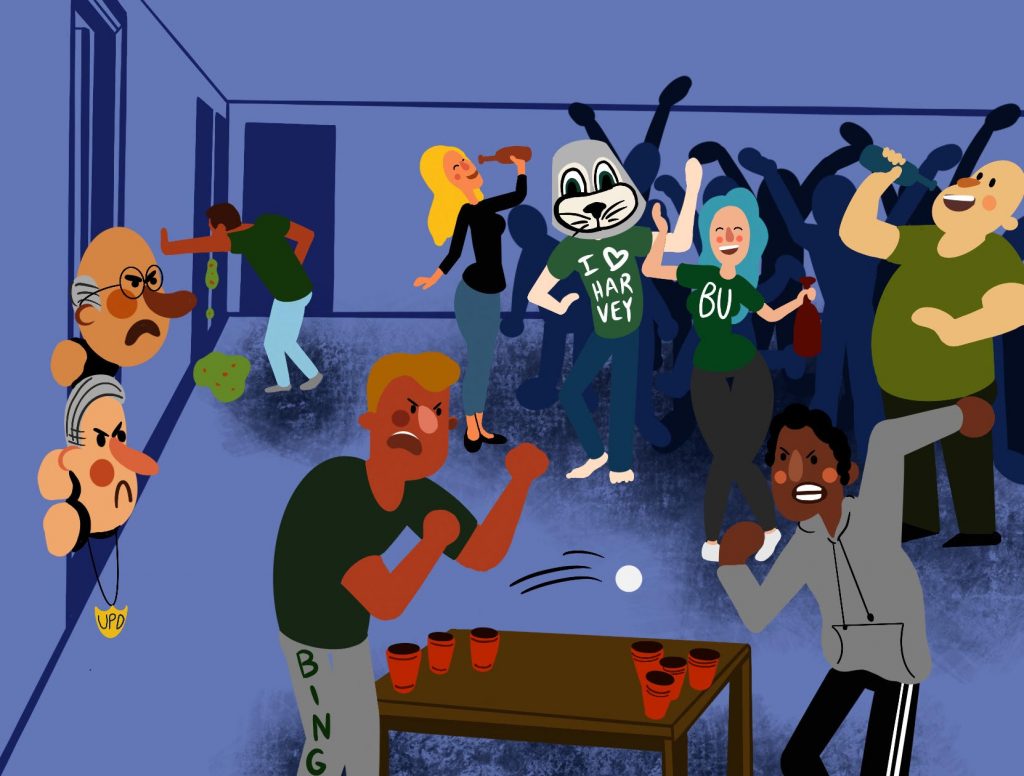In the days before students moved in to campus residence halls and classes began, several resident assistants (RA) went to the hospital for excessive alcohol consumption during a Binghamton University RA tradition, coined as “Hall Crawl.”
The tradition, according to Brendan Burns, ‘19, a former BU RA, consists of multiple RAs hosting parties in their dorm room which others could then “crawl” to from room to room in the beginning of the semester. But this semester, the tradition resulted in at least one firing and multiple cases of medical emergencies relating to incidents of alcohol consumption.
As a consequence, Residential Life learned about the event, and RAs from all campus living communities received an email on Sept. 3 from Amy Pollock Drake, associate director of staff development for Residential Life. In the email, all RAs, regardless of whether or not they participated in this year’s “Hall Crawl,” were instructed to attend a meeting on the matter.
Paola Mignone, interim director of Residential Life, wrote in an email that she became aware of the event after several RAs needed medical assistance.
“We were extremely disappointed to learn that RAs self-organized a night of drinking, which resulted in multiple cases of acute intoxication requiring medical attention,” Mignone wrote. “We are working with the RAs to assure that this behavior does not continue and also to root out the culture that led to the event.”
Although it is uncertain where the incident that required medical attention occurred, Mignone said she believes the event happened across most of the campus living communities, involving a large number of RAs. Mignone wrote that the meeting was conducted to guide RAs to change their behaviors.
“We have met with the RAs and the focus of that meeting and ongoing efforts will be to work with our RAs [to] find ways to help make a positive culture change,” Mignone wrote.
At least one RA lost their job as a direct result of the event. Several currently employed RAs declined to comment on the matter, with one citing concerns they might lose their job or face retaliation from Residential Life if they spoke with a Pipe Dream reporter.
Burns said RAs are dissuaded from talking to the media, since their position could associate themselves with Residential Life.
“It’s pretty discouraged to speak to the media generally to avoid liability,” Burns wrote in an email. “Residential Life would always say if you do talk to the media for some reason to stress that you are speaking on your own behalf, not as a representative of ResLife.”
Kimberly Jaussi, collegiate professor of Dickinson Community and an associate professor in the School of Management, also participated in the RA meeting. Jaussi wrote in an email that she is confident the RAs, involved or not, will learn from the incident.
“As a leadership scholar, I have hope and confidence that the leadership potential within all of the RAs will be realized [to] inspire learning and growth — and help craft positive solutions,” Jaussi wrote.



